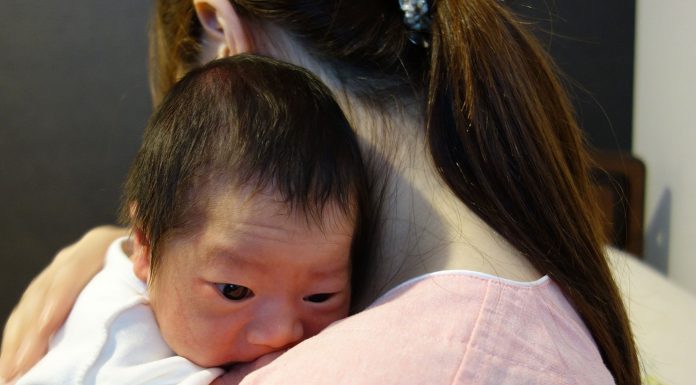How to best help the hundreds of thousands of New Zealanders diagnosed with a mental illness has proven contentious and is arguably the biggest health issue ahead of this year’s election.
The number of New Zealanders seeking help for mental health issues increased from 96,000 eight years ago to 168,000 last year, according to the Government – a rate far higher than just population growth.
In the 2012/13 New Zealand Health Survey, one in six New Zealand adults (an estimated 582,000 adults) had been diagnosed with a common mental illness at some point in their life.
Health Minister Dr Jonathan Coleman said it was a global issue.
Last October, the World Health Organisation launched a one-year campaign focused on depression and encouraging people to talk about it. The organisation said more than 300 million people around the world were now living with depression – an increase of more than 18 per cent between 2005 and 2015.
At a recent World Health Organization meeting, health leaders from around the world discussed the growing problem and grappled with how to solve it, Coleman said.
National has made steps in the right direction during the last three terms but with more than 550 Kiwis taking their own lives every year, there is still a long way to go.
Since National was elected in 2008, funding for mental health has gone from $1.1 billion to $1.4 billion.
The Mental Health and Addiction Workforce Action Plan 2017-2021 was released last year to develop a workforce with the right skills, knowledge, competencies and attitudes to provide innovative solutions and to guide government spending in the area.
There are now more than 600 extra nurses working in mental health and addiction services than there were in 2011 and in the last eight years there have been more than 100 extra psychiatrists employed by district health boards.
Earlier this year, Coleman also announced a mental health national improvement programme to standardise the prescription of medications, improve how patients were moved in and out of care and minimise the use of restraint and seclusion.
One possible solution raised by advocates was a national suicide reduction target, which had been suggested by an expert advisory panel but was dumped over fears of government accountability earlier this year.
More recently, Coleman told the Herald the target was not off the table. He said he recently met with two international suicide prevention experts and had since asked his officials to re-look at the proposal.
“I don’t have any philosophical objection to the target, but people have to realise it can’t be [just] a government target. It’s a whole of society thing and we are all responsible for getting the suicide rate down.”
There remained gaps in the system which meant many people who sought help for mild to moderate mental health issues were turned away.
Coleman acknowledged that and said one way the Government was trying to help was through the Telehealth service launched a year ago. There people could be put in touch with a mental health nurse who could talk through issues and help get treatment.
In this year’s Budget, $224 million was promised for mental health over the next four years. Of that, $100 million was set aside for 17 new mental health initiatives including more electronic-therapy options, more telehealth trials, better support and follow-up for those who try to commit suicide and expanded community mental health and addiction help.
But there seems to be no cohesive plan to tackle the issue as a whole.
A treasury report prepared for Finance Minister Steven Joyce ahead of this year’s Budget criticised the minister and ministry’s mental health strategy and encouraged Joyce to push for a cross-agency strategy.
“We don’t have confidence that the ministry will develop an effective mental health strategy in the specified timeframes, if at all,” the report said.
“The ministry has not been able to articulate a clear picture of the mental health landscape … Other social sector agencies have been frustrated that the concerns they are experiencing from people with mental health-related conditions have been inadequately recognised.”
Labour health spokesman David Clark agreed mental health was a priority. The party had promised to spend $43 million over two years to fund a pilot programme of mental health teams and coordinators who would provide free care to those with mild to moderate mental health issues, back a mental health review and give all secondary schools a full-time nurse to care for students’ mental and physical well-being.
New Zealand First health spokeswoman Ria Bond agreed mental health services needed to be made more accessible and said they would launch an independent mental health review to help establish the best way to do that.
The Green Party also believed a full inquiry into the area and a significant injection of government money was needed to make a difference.
Critics of the Government point back to health funding as the underlying issue.
They say health funding overall has not kept pace with population growth since National came into power.
Under National, health funding increased from $15.6 billion in 2014 to $16.77 billion this year but the opposition said another $2.3 billion was needed to restore health care to the state it was in seven years ago.
Coleman argued the growth in funding that had taken place when National entered Government was not sustainable.
Despite this, Labour has already pledged an extra $8 billion of funding for the sector over he next term.
The Green Party had also promised to match the growing need for health services with increased funding, while New Zealand First said they would increase funding for GPs and nurses.
One of the big changes to the health system under National was the increase in the age for free GP visits and prescriptions to children under 13 – an initiative major parties had steered clear of until then.
The move was lauded as a step in the right direction but the other major parties planned to extend it.
The Greens would provide free GP and nurse visits to under-18s and New Zealand First would increase the age to 16.
National has stopped short of lowering the age further but announced it would extend $18 doctor visits to an additional 600,000 lower-income New Zealanders and expand access to the Community Services Card to another 350,000 New Zealanders.
Labour has promised to reduce the cost of GP visits by $10 for all Kiwis, as well as expand access to the Community Services Card to another 350,000 people.
But perhaps the biggest change was the $2 billion pay equity settlement for care and support workers in aged and disability residential care and community support services.
“When I look back on my political career one day, that’s going to be one of the absolute highlights. They were doing the toughest work in the country on the minimum wage,” Coleman said.
But again, Labour said it was not enough and this month promised to also include mental health and addiction support workers in the settlement as a priority.
Another key area work needs to continue in is childhood obesity.
It is an issue Coleman has focused on more than his National predecessors and an area the smaller parties have taken a tough stance on.
Coleman’s position as Sport Minister suggested he would continue down the same track the party had taken with exercise as the priority but in 2015 he unveiled the Childhood Obesity Plan.
The key part of the plan was a health target that aimed to have 95 per cent of the children identified as obese during their B4 School Check referred to a health professional for treatment.
But critics and opposition said what should be measured was the change in obesity levels.
Labour has committed to introducing “an actual childhood obesity reduction target” but, like National, the party has shied away from committing to a sugar tax. Instead they promised to provide a time-frame where the food and drink industry would be required to reduce the sugar content in their products.
Green Party health spokeswoman Julie-Anne Genter said the party wanted a tax on sugary drinks to help curb the epidemic.
New Zealand First promised to remove GST from food bought from supermarkets.
Fighting for help
Kelly Stoddard, 39, finally fell pregnant with her first child last year but it wasn’t the happy experience she imagined.
Near the end of her pregnancy, she started to feel anxious and down and after the birth of her son, Jett, things only got worse.
She was constantly crying, often struggled to find motivation to do anything, was anxious about looking after her son and found herself shouting at the infant on a couple of occasions.
About five weeks after Jett was born, Stoddard’s midwife told her she thought she had post-natal depression and sent her to the GP for a referral to Maternal Mental Health.
She got a call from Maternal Mental Health to assess her situation but didn’t hear back.
When she chased them, Stoddard was told her situation was not severe enough to qualify for help. She couldn’t afford to pay for help herself so continued to struggle through, slowly getting worse. Eventually she went back to her doctor who referred her again and convinced her to accept a prescription for antidepressants.
Despite her desire to avoid drugs she caved in when she was again told again she was not high-risk enough for public treatment.
The drugs helped but Stoddard was still only just getting by.
“He’s a much-wanted baby. It just saddens me that I couldn’t enjoy him for the first three or four months.”
It was ridiculous there was no help available until people got to the stage where they were considering harming themselves or others when earlier intervention could prevent that, she said.
“It’s really disappointing that people have to get to that level before they are listened to.”
The North Shore woman, who had counselling for depression about five years ago, is adamant therapy of some sort would have helped.
She believed the Government had not put enough money into mental health services and said the extra funding proposed by many parties was the only way to make sure everyone got help regardless of the severity of their illness.
“You’re trying to stop the cycle. So the funding to stop that cycle of getting worse needs to be put in place.”
Policies
National: An extra $3.9 billion on health in the next term including $224 million for mental health; extend $18 GP visits to more low income people; 95 per cent of obese four-year-olds referred for treatment each year; continue to roll out the National Bowel Screening Programme.
Labour: An extra $8 billion more health spending in the next term; a nurse in all secondary schools and a new mental health pilot scheme; reduce GP visits by $10 and expand access to Community Services Card; set a childhood obesity reduction target and introduce a time-frame for industry to reduce sugar in food; set up a National Cancer Agency.
Greens: Free GP and nurse visits for under-18s; a full mental health inquiry; introduce a sugary drinks tax and progressively extend it to other unhealthy products; support active transport to get people moving.
NZ First: Free GP visits for under-16s; initiate an independent mental health review; remove GST on food sold in supermarkets; more funding for GPs and nurses.
Maori Party: Free GP visits and prescriptions for under-18s; more kaupapa Maori Youth and Whanau services to address addiction and mental health; investigate introducing a sugary drinks tax and removing GST on healthy food.
Act: Greater spending on health in future budgets; more support for those with physical or mental conditions; introduce Intraoperative Radiotherapy Treatment for breast cancer.
United Future: Reduce administration costs to allow more money to be spent on services; more resourcing for healthcare and addiction treatment; parent education as the first line of attack to reduce obesity; increase funding for sexual health and contraceptive programmes.
The Opportunities Party: More spending on prevention and primary care; more funding for mental health and addiction through increasing the tax on alcohol and legalising and taxing cannabis; change taxes to make healthy food more affordable; introduce a rental WoF to make homes healthy.






















